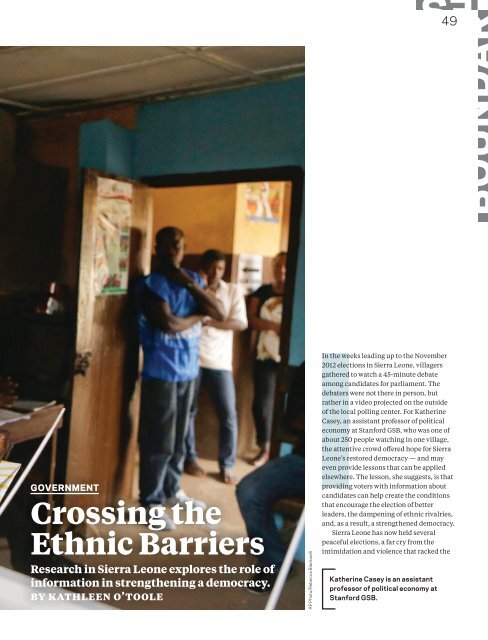Magazine_blue_green
Create successful ePaper yourself
Turn your PDF publications into a flip-book with our unique Google optimized e-Paper software.
49<br />
BOUNDARIE<br />
IES<br />
Name Teekay Goes Here<br />
GOVERNMENT<br />
Crossing the<br />
Ethnic Barriers<br />
Research in Sierra Leone explores the role of<br />
information in strengthening a democracy.<br />
BY KATHLEEN O’TOOLE<br />
AP Photo/Rebecca Blackwell<br />
In the weeks leading up to the November<br />
2012 elections in Sierra Leone, villagers<br />
gathered to watch a 45-minute debate<br />
among candidates for parliament. The<br />
debaters were not there in person, but<br />
rather in a video projected on the outside<br />
of the local polling center. For Katherine<br />
Casey, an assistant professor of political<br />
economy at Stanford GSB, who was one of<br />
about 250 people watching in one village,<br />
the attentive crowd offered hope for Sierra<br />
Leone’s restored democracy — and may<br />
even provide lessons that can be applied<br />
elsewhere. The lesson, she suggests, is that<br />
providing voters with information about<br />
candidates can help create the conditions<br />
that encourage the election of better<br />
leaders, the dampening of ethnic rivalries,<br />
and, as a result, a strengthened democracy.<br />
Sierra Leone has now held several<br />
peaceful elections, a far cry from the<br />
intimidation and violence that racked the<br />
Katherine Casey is an assistant<br />
professor of political economy at<br />
Stanford GSB.


